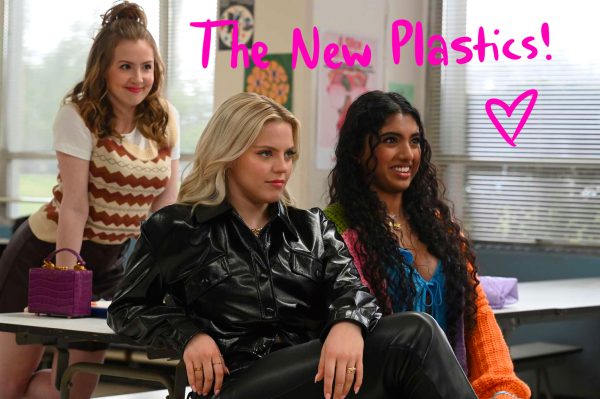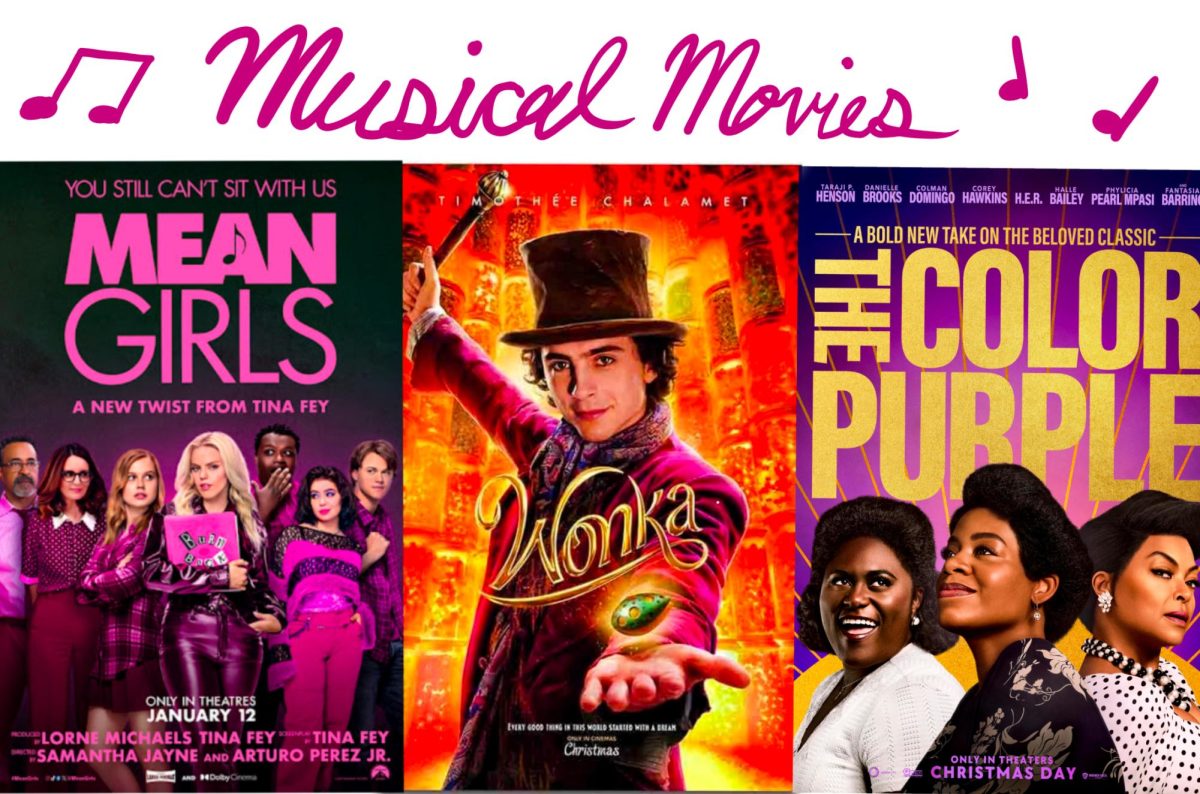“Mean Girls,” “Wonka,” “The Color Purple”–what do all three have in common? Besides the fact that they’re all movies that have been released in the last few months, they are similar in one very important way: they’re all musicals.
For me, the only movie that I knew was going to be a musical was “Mean Girls.” I used to be a huge fan of the stage adaptation of the 2004 movie, so I already knew that a movie version of the musical was in development. When that first teaser trailer dropped and Reneé Rapp began singing, I was absolutely floored. Yet, there was one common occurrence I was starting to notice. Besides that one line, the movie was promoting itself as a simple remake of the original.
Sure, there was dancing in the trailer that theoretically should have been noticeable, but the number of people online who were shocked and upset to find out that “Mean Girls” was a musical was enough to start questioning the advertisement of the project altogether.
And for “Wonka” and “The Color Purple,” I didn’t even realize they were musicals until they were released in theatres when the Internet lost its mind. Not only were there so many musicals being released in theatres, but how did no one know about it beforehand?
Why does Hollywood seem to hate advertising musicals?
To me, there’s only one true answer to this question. Simply put, Hollywood thinks that no one wants to watch a musical.

Especially in the last decade, it seems as though more and more people are simply tired of watching musicals on the big screen. Whether it be because of poor writing, cheesy soundtracks (that even I can admit are sometimes questionable), or even just fatigue, people don’t want to watch musicals anymore.
Natalia Chavez ‘24 puts it best, “I personally think they’re great, but we need to stop musical adaptations. I hate having to adjust stories because they were written one way for a reason, and especially in a musical when every song is so essential, it can take away the message by changing its formatting.” Translation: Natalia hates musical adaptations.
It reminds me of the so-called “superhero fatigue” that has taken place over the last few years. People were tired of seeing mediocre superhero movies, so what happened? People stopped seeing these movies altogether. Sales dropped and viewers dwindled. And unless something changes with this generation of musical adaptations, they might fall to the same fate.
However, I don’t necessarily think that Hollywood has to get rid of musicals in their entirety, as there’s a clear audience for whom Hollywood can target all of these musical adaptations: musical theatre fans.
By not advertising musicals as actual musicals, Hollywood attempts to appeal to the general public, hoping that they’ll see the movie if they don’t realize it’s a musical. By the time the audience sits down in their chairs and listen to the first song, they’ll simply decide to stay for the whole thing. But that’s not what happens. People get upset thinking they were lied to, and their entire opinion of the movie is tainted. It just leads to people feeling more uninterested in the musical genre as a whole. As Giselle Gomez ‘26 puts it, “It’s dishonest not only to the musical theatre community, but also to the general audience, as people who want to see a regular movie are going in thinking that they are getting what’s advertised, but it’s completely different. It hurts everyone involved.” I will say that it’s important to note that, theoretically, companies are making more money through this false advertising. If these executives didn’t think they’d make money through marketing musicals as regular movies, they would never have done so in the first place.
But it’s not like everyone dislikes these musical adaptations. There are those like Ashley Hawley ‘25, who said, “I’ve heard many good things about ‘Mean Girls,’ so I’m excited to watch it!” Some people want to go to these movies and are happy to do so, yet problems still arise. For example, “Mean Girls” changed the instrumentation of its songs to make them sound more mainstream and ‘pop,’ yet kept the major musical theatre elements (such as lyrics). The songs fall into this weird category where they’re too musical theatre for mainstream fans, yet sound too modern for musical theatre fans. No one wins… except for Ms. Barclay ’94, who explained, “I personally don’t like movie musicals. I was originally going to see ‘Mean Girls’ just because it was a remake, but now that I know it’s a musical, I have zero interest. And it’s not because I don’t like musicals. I LOVE musicals, but I don’t like them in movie form.”
There are certainly others like Ms. Barclay out in the world, those who would be fully tempted by the marketing of the most recent musicals. They never would’ve gone and seen them otherwise, but when the characters start singing on the big stage, they too will be disappointed.
Sure, a musical movie adaptation may not get you to reach “Avatar” levels of success, but there is still 100% a market for them. By trying to take these musicals away from that market, not a single person is satisfied. In the end, I ultimately don’t want to resort to watching “slime tutorials” of Broadway shows on YouTube.








